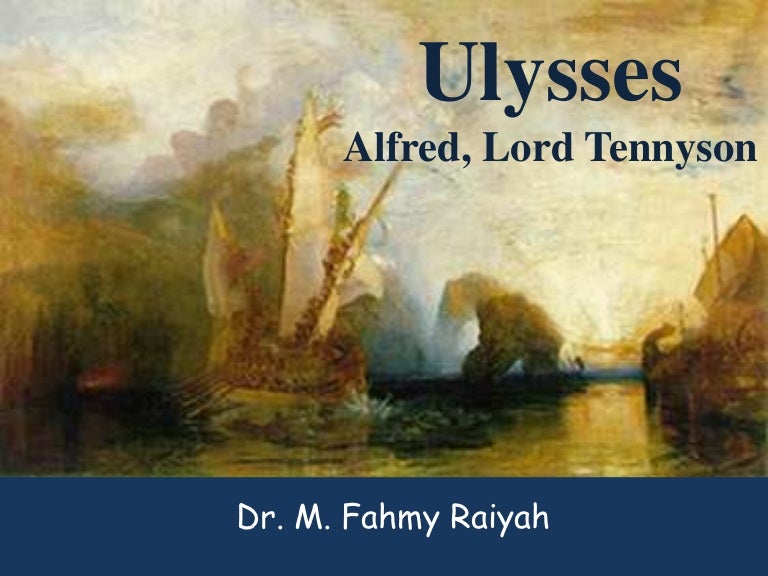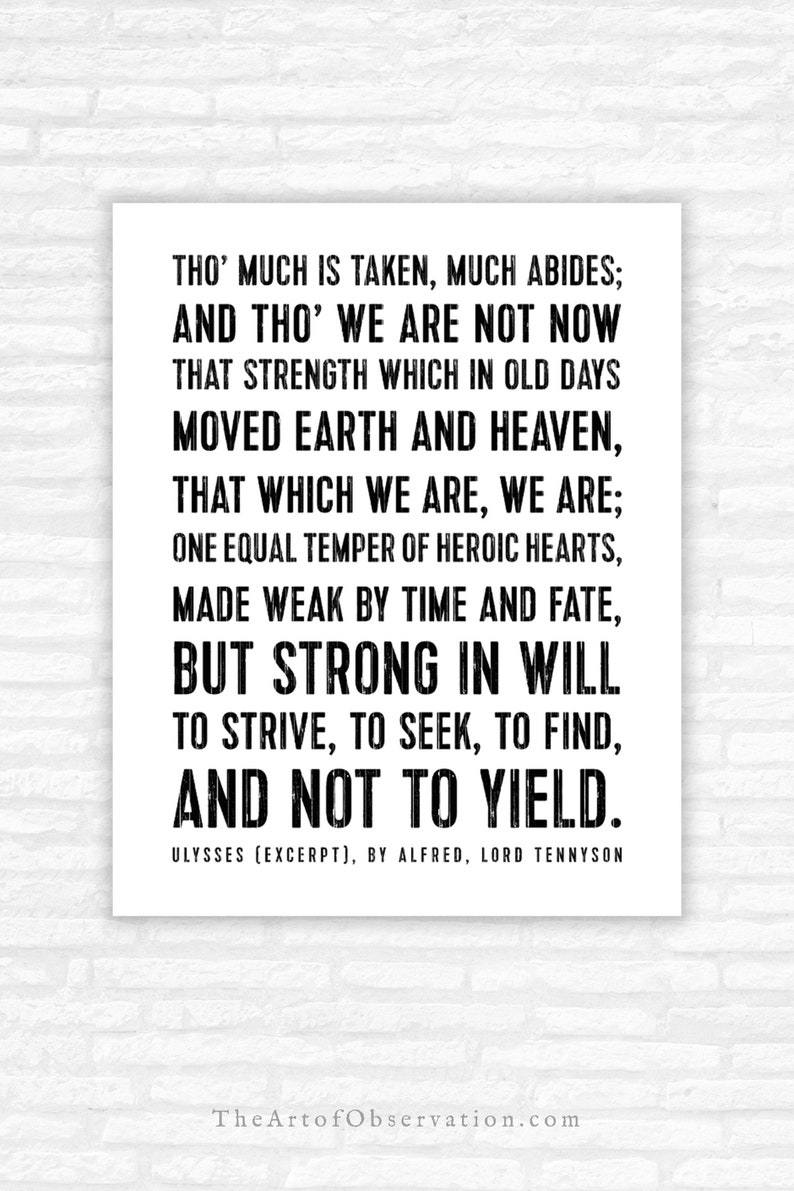
The form conveys a symbol of freedom, and goes along with the poem’s theme. Tennyson’s form of this composition allows for a straightforward approach to the audience and creates a sense of self responsibility for the speaker. The audience of the poem shifts throughout from speaking to ones s elf to addressing his mariners and later an introduction of his son. Since the poem is a dramatic monologue, it is written in blank verse. He spoke of traveling to a place “beyond the sunset, and the baths of the western starts”(line 60-61). The second stanza highlights his drive to rid himself of that environment when he states: “I cannot rest from travel.” He did not want to conform to the normality of the life surrounding him.
#Ulysses poem full
“Among these barren crags”(line2) described the weight of daily life which is full of failure and lack of positive motivation. These struggles are shown in the word choice that Tennyson uses to describe Ulysses’ journey. The poem conveys the hardship of moving onward. Elements of the final voyage are described in Dante’s Inferno and reworked to incorporate a speech by Ulysses in Ithaca (Scwarz 39). He drew from elements from the storyline of this epic as well as Dante’s Inferno. Homer’s Odyssey was the origin of Ulysses in Tennyson’s composition. Like other authors, Tennyson was inspired by drawing from other authors to refine his own vision. In reading the poem, one of the main take home messages is to strive to move onward and upward in life despite the situations around you. “Death closes all” (line51) is a quote that Tennyson chose not to allow to bring him down and set him back in life. Like many authors, Tennyson’s poems share like themes In Memoriam took on a similar theme of a deeply cherished friend.

The description of his journey in this poem was one of inspiration in his plight to move forward in life. To strive, to seek, to find, and not to yield.Īpollonio, Adventures of Ulysses (1435)SORUCE?Īnalysis: Tennyson’s poem Ulysses was composed in 1833 shortly after he learned of the death of a close friend from college named Arthur Henry Hallman. Made weak by time and fate, but strong in will Moved earth and heaven that which we are, we are We are not now that strength which in old days

Tho’ much is taken, much abides and though It may be we shall touch the Happy Isles, It may be that the gulfs will wash us down: The sounding furrows for my purpose holds Push off, and sitting well in order smite The long day wanes: the slow moon climbs: the deep The lights begin to twinkle from the rocks:

Not unbecoming men that strove with Gods. Some work of noble note, may yet be done, Old age hath yet his honour and his toil ĭeath closes all: but something ere the end,
#Ulysses poem free
The thunder and the sunshine, and opposedįree hearts, free foreheads - you and I are old Souls that have toil’d, and wrought, and thought with me.

There lies the port the vessel puffs her sail: Most blameless is he, centred in the sphere This labour, by slow prudence to make mildĪ rugged people, and through soft degrees To whom I leave the sceptre and the isle. Life piled on lifeįrom that eternal silence, something more,Ī bringer of new things and vile it wereįor some three suns to store and hoard myself,īeyond the utmost bound of human thought. To rust unburnished, not to shine in use!Īs though to breathe were life. Gleams that untravelled world, whose margin fades Yet all experience is an arch wherethrough Myself not least, but honoured of them all Īnd drunk delight of battle with my peers Much have I seen and known cities of menĪnd manners, climates, councils, governments, That loved me, and alone on shore, and when Greatly, have suffered greatly, both with those Life to the lees: all times I have enjoyed That hoard, and sleep, and feed, and know not me. Match’d with an aged wife, I mete and dole Tennyson’s Ulysses by Clarkson Stanfield, RAīy this still hearth, among these barren crags,


 0 kommentar(er)
0 kommentar(er)
